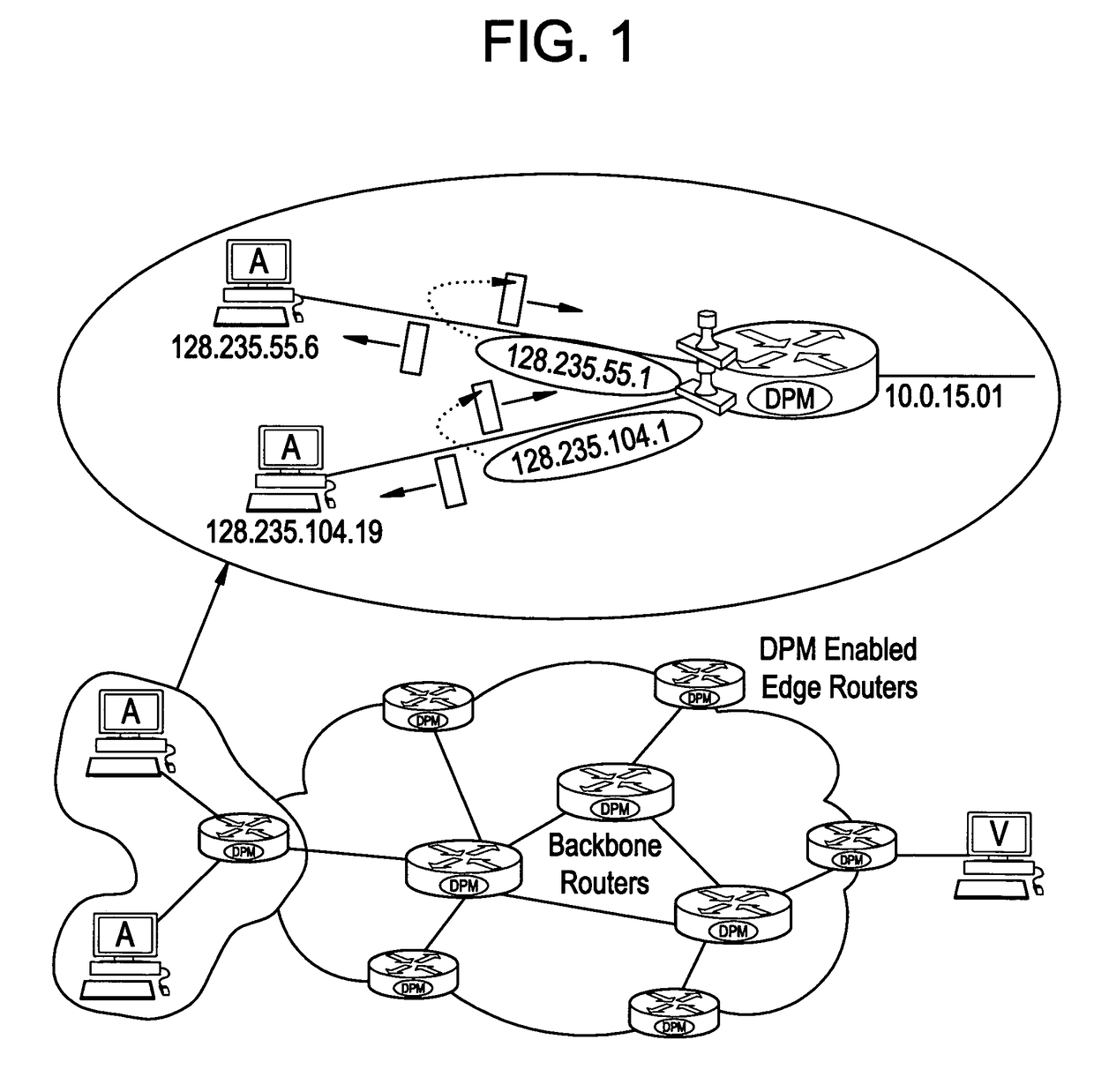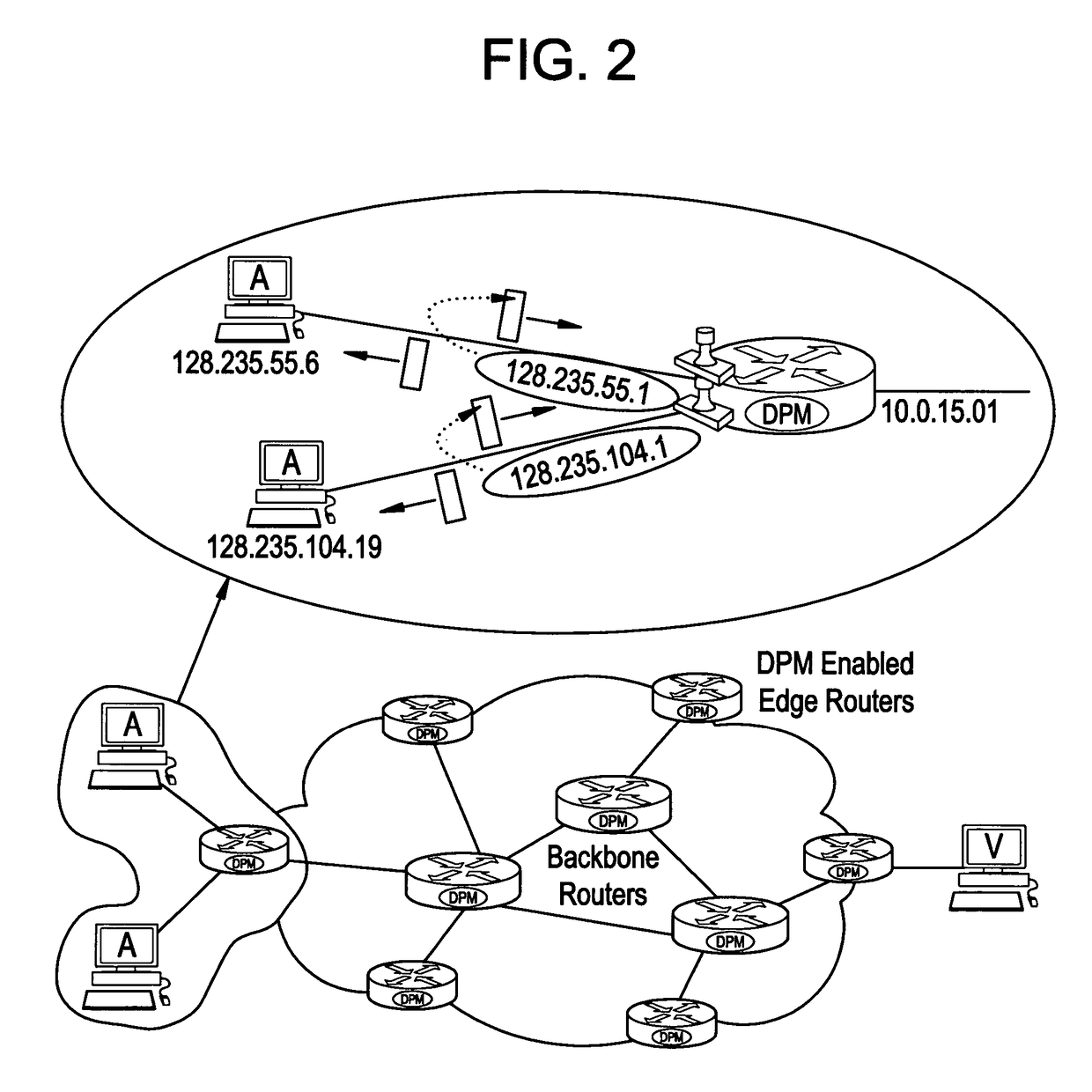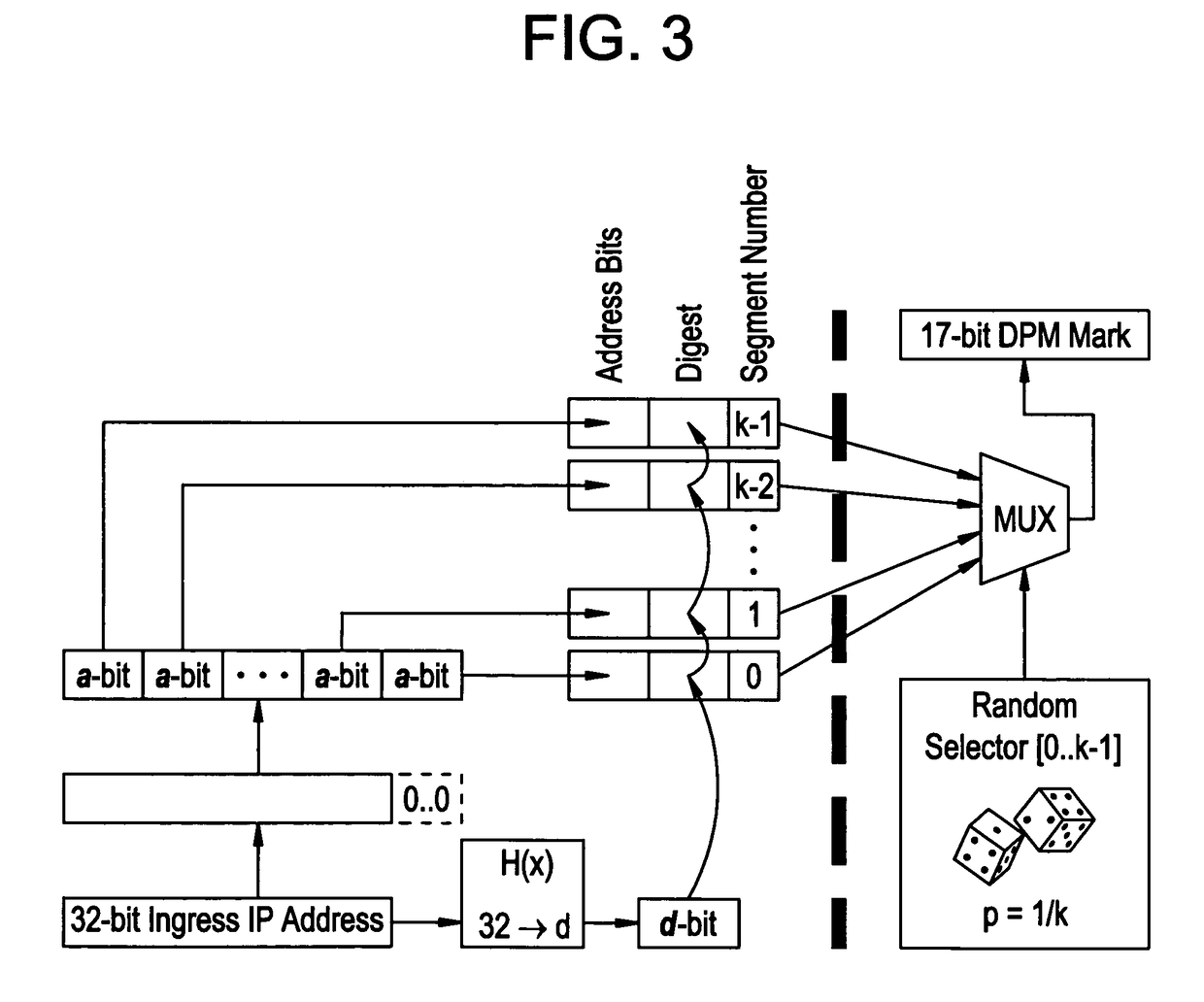Accomodating fragmentation with deterministic packet marking
a packet marking and fragmentation technology, applied in the field of methods useful in securing the internet infrastructure, can solve the problems of inability to trace back to the slaves by other existing schemes, limited involvement of internet service providers (isps), and minimal changes to the infrastructure and operation required to deploy dpm, etc., to achieve no processing overhead, no bandwidth, and simple implementation
- Summary
- Abstract
- Description
- Claims
- Application Information
AI Technical Summary
Benefits of technology
Problems solved by technology
Method used
Image
Examples
Embodiment Construction
[0022]The basic DPM is a packet marking algorithm. We first consider the general principle behind DPM and discusses the most basic implementation of the scheme.
[0023]By “Deterministic Packet Marking” we refer to the fact that every packet traversing a DPM-enabled router is marked, i.e., the packet is inscribed with partial information of the router interface, as opposed to “Probabilistic Packet Marking” in which each packet is marked by a router along the traversed path with a probability, say, 0.04 (4%), i.e., some packets may not be marked at all.
[0024]The two key assumptions applicable to the method are (1) that an attacker may generate any packet; and (2) that routers are both CPU and memory limited.
[0025]The 16-bit packet Identification (ID) field and 1-bit Reserved Flag (RF) in the IP header are used to mark packets. Each packet is marked when it enters the network. This mark remains unchanged for as long as the packet traverses the network. This automatically removes the issu...
PUM
 Login to View More
Login to View More Abstract
Description
Claims
Application Information
 Login to View More
Login to View More - R&D
- Intellectual Property
- Life Sciences
- Materials
- Tech Scout
- Unparalleled Data Quality
- Higher Quality Content
- 60% Fewer Hallucinations
Browse by: Latest US Patents, China's latest patents, Technical Efficacy Thesaurus, Application Domain, Technology Topic, Popular Technical Reports.
© 2025 PatSnap. All rights reserved.Legal|Privacy policy|Modern Slavery Act Transparency Statement|Sitemap|About US| Contact US: help@patsnap.com



